What is the history of Chinese RPGs until the appearance of 'Genshin' with cumulative sales of over 500 billion yen?

``
Before Genshin Impact: A brief history of Chinese RPGs | by Felipe Pepe | Medium
https://felipepepe.medium.com/before-genshin-impact-a-brief-history-of-chinese-rpgs-bc962fc29908
China is broadly divided into three regions: Mainland, Hong Kong and Taiwan, each with unique socioeconomic scenarios and regulations. For example, home video game consoles were banned in mainland China from 2000 to 2014, but could be purchased legally in Hong Kong and Taiwan.
Another difference is that Hong Kong and Taiwan use traditional Chinese characters , while the mainland uses simplified characters . The upper part of the image below (Traditional) is traditional Chinese, and the lower part (Simplified) is simplified. It is wind, country, opening, and love from the left, but you should be able to see that the shape is quite different depending on the thing.

In games that appeared after 2000, both traditional and simplified characters are available as options, but it seems that they were not available before that. Therefore, in order for Taiwanese to play games from mainland China, there were cases where they had to read simplified characters instead of traditional characters that they always read.
China's game industry started in Taiwan in the mid-1980s, and it seems that it was mainly for Apple II and IBM PC. Also, due to the high import costs at the time and the lack of games that support Chinese, it seems that there were very few options.
For Western games such as
Below is the Ultima III Exodus manual translated into Chinese by a volunteer.
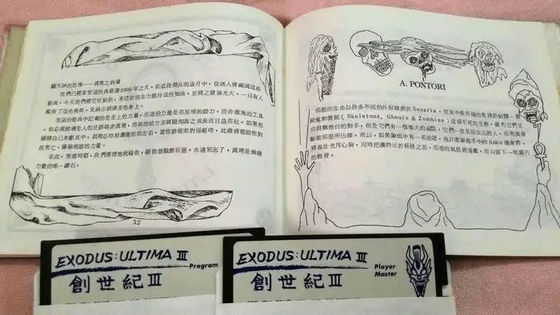
By 1986, Jingxun, one of the groups selling pirated copies and translating manuals, began publishing a game magazine focused on PC games called Jingxun Computer Magazine. Jingxun Computer Magazine seems to have advertised pirated games to be released and provided strategies.
The 2nd issue of Jingxun Computer Magazine, published in 1986, had
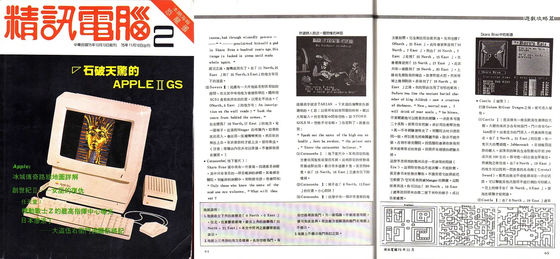
Similar to game companies such as Poland's CD Projekt, Ukraine's GSC Game World and Russia's Akella, Jingxun will move from selling pirated copies and translations to developing original titles. This is how the game company Kingformation was born.
Through Jingxun Computer Magazine, Kingformation will ask domestic game developers to create clone games for Dragon Quest I, II, and III. It seems that this was a Chinese RPG run that can be played without accessing the code of Dragon Quest I II III.
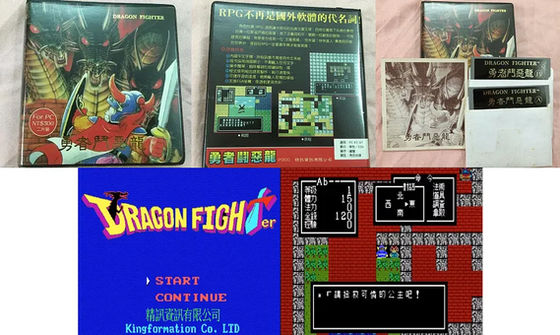
In addition, Kingformation released 'MX-151' in 1987. It seems that this was a crude clone of Ultima III Exodus, but Mr. Pepe wrote, 'This is probably the first original RPG in Japan.'

One of Jingxun's founders then left Kingformation in 1988 to launch his own game magazine and game publisher combination, Softstar. Furthermore, sanctions from the United States forced Taiwan to amend its copyright rules in July 1989, allowing American companies to sue Taiwanese piracy groups. With this, Kingformation will stop importing game magazines and pirated editions and transform itself into a mere game publisher. On the other hand, it seems that Taiwanese pirated publishing groups such as Soft-World have signed formal licenses with American game companies and started selling overseas games.
The aforementioned Taiwanese game companies release several games each year. Softstar released 'Monopoly' in 1989, which seems to have grown to be one of the most popular games in Taiwan's early game market. In addition, Softstar released 'Xuan-Yuan Sword' in 1990, and said, 'Although it is a clone of Dragon Quest, it has excellent artwork and presentation, and the setting that mixes martial arts and fantasy elements stands out. ' said Pepe.
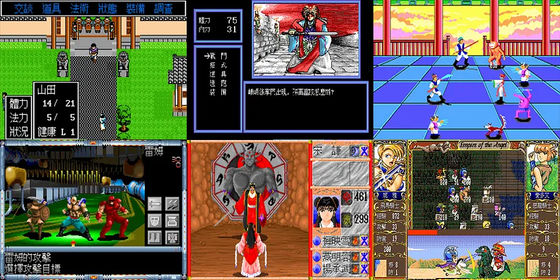
In addition, Kingformation in 1991 'Legend of the Chivalrous Hero', Soft-World in 1991 'Eight Swords of Shenzhou', Softstar in 1991 'Fantasy Zone of Computer', Dynasty International in 1992 ' Book of the Sword Saint', Softstar released games such as 'Angel Empire' in 1993, but many of them imitate popular overseas games that have already been released while incorporating their own settings and graphics. It seems that it has become a thing.
These are just a few examples, and it seems that dozens of RPGs from China were released in the first half of the 1990s. While many games were more imitative of foreign games than originals, some, such as Softstar's Xuan-Yuan Sword series, have become popular series that have been released for decades. .
In 1995 Softstar released a game called 'Legend of Sword and Fairy' or 'Chinese Paladin', 'PAL95'. This is a Chinese RPG about a man who travels to a mysterious island in search of medicine for his aunt.

There are many reasons why the release of this work was a milestone for the Taiwanese game industry, but 'most importantly, it sets a model for what a Chinese RPG should be, much like Dragon Quest did in Japan.' Established,” writes Pepe.
In addition, Pepe said Chinese Paladin was as good as, and in some respects better than, foreign games. In particular, Chinese Paladin's story was emotional and romantic, without imitating traditional RPGs, and was much more mature than other games.
Chinese Paladin has been a huge hit, spawning multiple sequels, a remake (2001), and TV series (2005, 2021). The graphic on the left is the original Chinese Paladin released in 1995, and the graphic on the right is the remake version released in 2001.
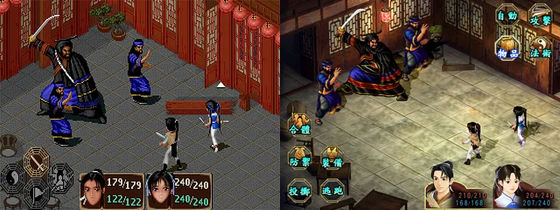
'Xuan-Yuan Sword: Dance of the Maple Leaves' is one of the best Chinese RPGs released in 1995. As a disciple of

'Heroes of Jin Yong' released in 1996 is also one of the representative works of Chinese RPG of this era. The game is an open-world RPG by Heluo Studio that puts players in the shoes of Chinese best-selling author

Chinese game developers evolved very quickly. In the early 1990s, they created simple clones of foreign games. By the early 1990s, the growth rate reached its peak. The result was Xuan-Yuan Sword 3: Beyond the Clouds and Mountains, a great work that still reigns supreme in the Chinese gaming industry.

Heluo Studio's second game 'Legend of Wulin Heroes' released in 2001 is also a very popular work. The protagonist enrolls in a martial arts school and undergoes various training to master weapons and martial arts styles. Between training, players can travel the world, help people, and befriend martial artists. The game offers a variety of routes and endings, allowing you to become famous or infamous.

'Legend of Wulin Heroes' was remade as 'Tales of Wuxia' (left) in 2015, and 'Path of Wuxia' (right) was released as a spin-off in 2021. So the game loses some of its charm,' Pepe said. Regarding Path of Wuxia, whose early access version is released at the time of writing the article, Mr. Pepe expresses it as 'like the martial arts school version of Hogwarts that appears in Harry Potter.'

In addition, it seems that more than 200 Chinese RPGs were released from the 1990s to the 2000s. The most popular settings for Chinese RPGs are those based on martial arts, samurai warriors, the Warring States period, and the Three Kingdoms. However, not all genres fit into these genres, and there are many Western-style fantasy works. Below are 'Flame Dragon II', 'The Fighting Blast' and 'Thunder Force' from the left, especially the Flame Dragon series is one of the most loved tactical RPG series in China.

After that, in the early 2000s, Chinese games will be exported to the United States, Russia, South Korea, Japan, etc. The problem with exporting Chinese RPGs abroad was that the story and setting focused heavily on Chinese culture and history, making it difficult to translate. As a result, Mr. Pepe points out, 'Even the excellent translation of Genshin Impact cannot capture the high density of Chinese.'
As the Internet spreads, online games will become more popular than single-player RPGs, and the trend will arrive in China. In China, 'King of Kings' released by the National University of Taiwan in 1996 evolved into a more graphical MMORPG in 1999 and attracted many users.
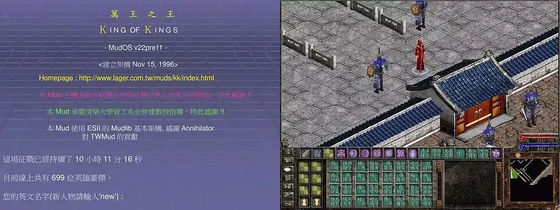
After that, MMORPGs such as Japan's '
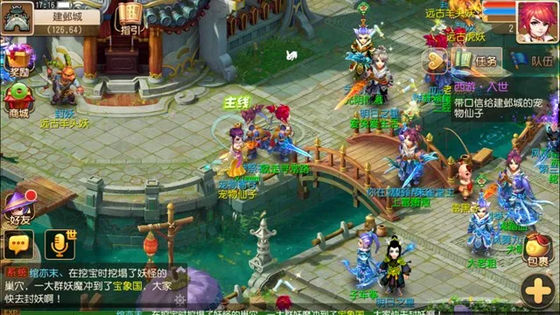
The reason why online games are so popular and profitable in China is that there is no concern about copyright infringement, which has been a problem for many years, and basic play is free, and China has one of the largest PC game markets in the world. It seems that it was because it was.
As online games become popular in China, games of the style of ``free to play'' and ``earn revenue by charging'' will become popular in the Chinese mobile game market. However, this is a phenomenon that has occurred not only in China but also worldwide, and in the same way in Japanese and American companies, classic single-player RPGs have disappeared, and free-to-play games such as games for smartphones are increasing. said Pepe.
As a result, the number of offline PC game releases in China will drop dramatically. In addition, Mr. Pepe wrote that ``At the same time, single-player RPGs were extinct in South Korea,'' and said that the decline of single-player RPGs was a global trend, not just in China.
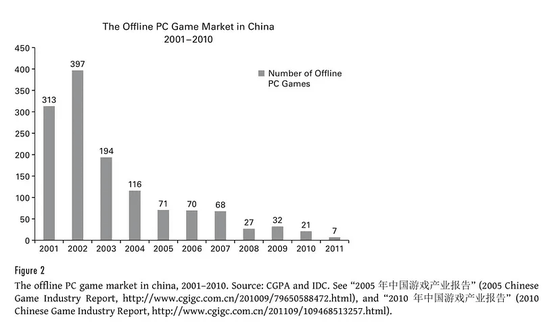
While single-player RPGs are declining, ``Genshin'' appeared in 2020. Genshin Impact is a multiplayer RPG, but it's basically a single-player game. In addition, Genshin has succeeded in bridging all platforms such as mobile, PC, and home game consoles. In addition, Mr. Pepe praises that Genshin has cleared the major obstacles for Chinese games so far, such as localization and marketing. As a result, Genshin Impact is the most successful Chinese game to date, with cumulative sales exceeding $3.7 billion two years after its release.
Since the appearance of Genshin Impact, there have been several notable works from China, but few of them have yet achieved great success. However, ``It is clear that Chinese RPGs will play an increasingly important role in the global market,'' Pepe wrote, paying close attention to future trends in the Chinese game industry.
Related Posts:
in Game, Posted by logu_ii







